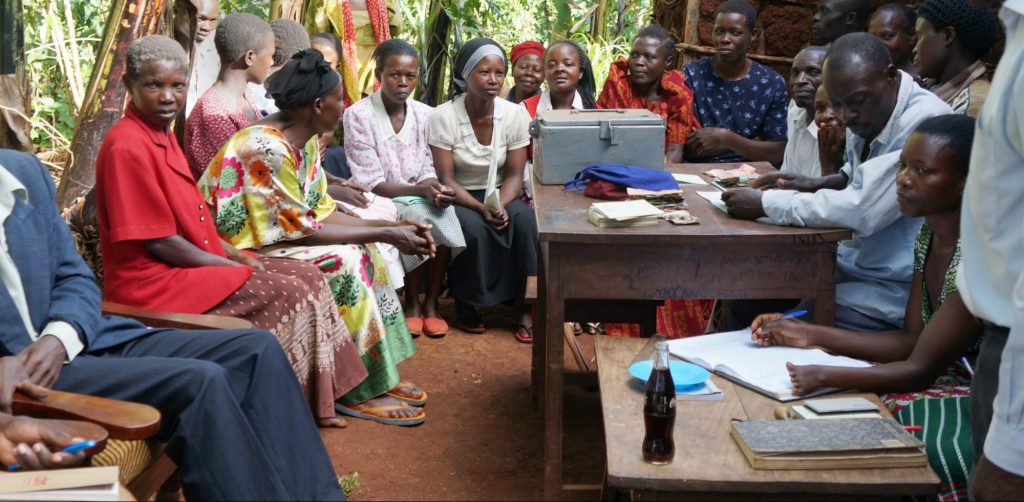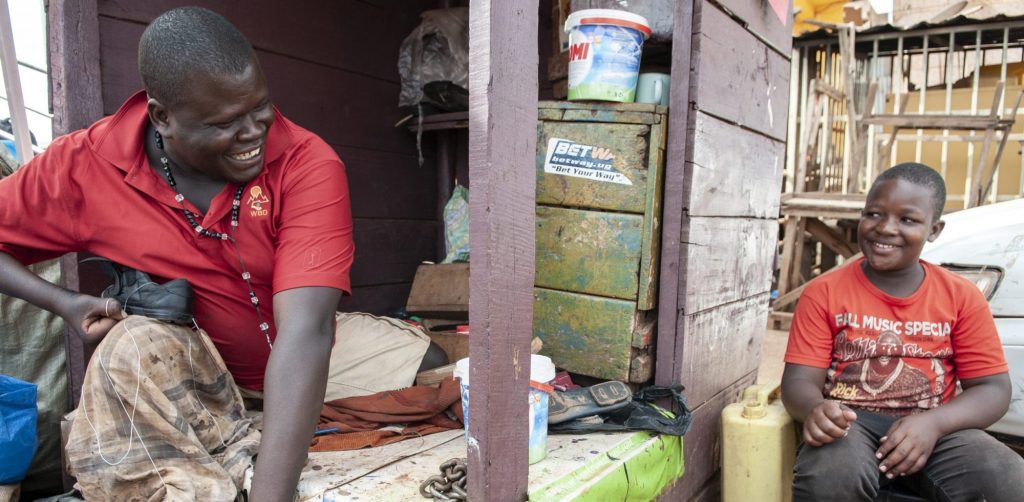Accross the world, persons with disabilities and their families are more likely to experience economic and social difficulties than persons without disabilities. The Economic Empowerment Programme aims to ensure that persons with disabilities in the target areas are economically independent, socially recognised and included in the development of their community.
The programme is a collaboration between NAD, the National Union of Disabled Persons of Uganda (NUDIPU), their District Unions, microfinance institutions, and local working groups.
NAD has supported Economic Empowerment programmes in Uganda since 2009 as a pilot in Soroti and Sironko district.
Disability and poverty
While Uganda has made significant social and economic progress in the last two decades, and the percentage of people living below the poverty line has decreased, around half of Ugandans in households with persons with disabilities are living in extreme poverty.
Persons with disabilities experience that poverty and societal attitudes reinforce the barriers to education, employment and social life. The lack of social recognition results in them losing the opportunity to contribute to the development of their communities.
As a result of their low economic status, many persons with disabilities are not able to access credit to boost their entrepreneurial aspirations. Women with disabilities are even less likely to be employed or access credit than men, and many find themselves stuck in abusive relationships, being financially and socially dependent on their partners and families.
The Economic Empowerment Programme works to break this cycle of poverty through entrepreneurship training to persons with disabilities, capacity building of stakeholders, and inclusive savings and credit groups in the communities.

Our approach
The Economic Empowerment programme uses the iSAVE model developed by NUDIPU, the Association of Microfinance Institutions of Uganda (AMFIU) and NAD.
iSAVE is an inclusive microfinance programme designed to remove the economic and social barriers to inclusion of persons with disabilities and their families. iSAVE aims at making persons with disabilities economically independent, socially recognised and included within their own communities.
The programme works with local communities to support the establishment of iSAVE village savings and credit groups. The groups are member-owned and self-managed, and the participants are trained in how to develop and maintain a savings and credit group. All funds and savings are generated locally by individual group members. To read more on iSAVE, go the programme’s website.
Main achievements in Uganda
Some of the main achievements of our Economic Empowerment work and partnerships are:
- The TOFI programme was launched in Kampala in February 2020, and project inception meetings were held in the five EEP implementation districts of Mpigi, Luuka, Mayuge, Moyo and Yumbe. Participants included District Union Board members, district local government key personnel, representatives from DPOs, private sector, non-governmental and community-based organisations and disability leadership among others.
- A total of 54 iSAVE groups were formed in 2020.
- Awareness raising and disability inclusion assessments were conducted in the five TOFI districts. During the 2019-2020 reporting period, a total of 91 staff members of mapped and selected financial institutions were taken through disability awareness training in preparation for service provision for persons with disabilities. Through these institutions, 763 persons with disabilities were reported to have accessed formal financial services from partner institutions.
- Between 2019 and 2020, the savings volume increased by over 670 million Ugandan shillings cumulatively, while the loans volume increased by over 540 million Ugandan shillings.
- More than 1500 persons with disabilities have been able to start income generating activities as a result of participating in the iSAVE programme.
- 13 microfinance institutions and Savings and Credit Co-operative Societies (SACCOs) have become disability-inclusive in their operations in Uganda, namely: Opportunity Bank, Post Bank, Vision fund Uganda, Alut kot SACCO, Tujijenge, Lyamujungu SACCO, Kyamuhunga, Rushere SACCO, Advance Microfinance, Bunyaruguru SACCO, Busia SACCO, Nile Microfinance, and Kigarama SACCO.
- Districts where the programme is operational have improved their good governance practices. Partly by conducting General Assemblies that have brought into place new leaders, particularly in the districts of Manafwa and Lira. Others have held Annual General Meetings at which they have created funds to sustainably run the project after the funding period.
- Over the last 5 or so years, the iSAVE model has been replicated in other countries, including Rwanda, due to its uniqueness in empowering persons with disabilities and their caregivers.
- Some organisations have adopted the model, including the Stromme Foundation, while partners like CBM have funded NUDIPU to run the programme in the district of Mityana.
- Some financial institutions like Opportunity Bank have become more disability inclusive in their operations. For instance, allowing persons with disabilities to open bank accounts without paying initial fees, and including persons with disabilities in their monitoring indicators.
- All District Unions of persons with disabilities of Lira, Manafwa, Iganga, Apac and Kamuli, among many others, have well established financial management and accounting frameworks that enables them to streamline the functioning of their saving groups. All these processes contribute to the empowerment of persons with disabilities in their communities.

